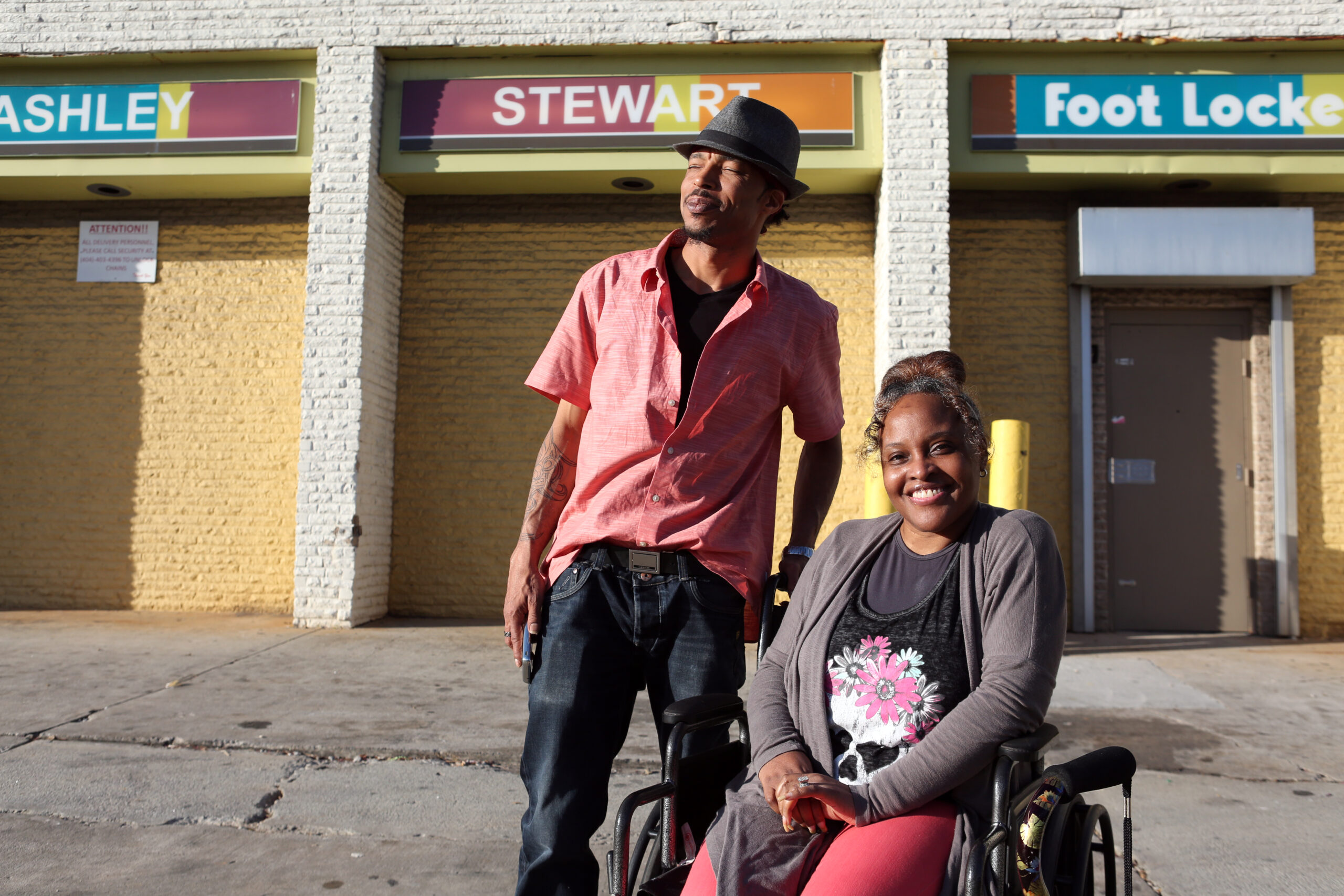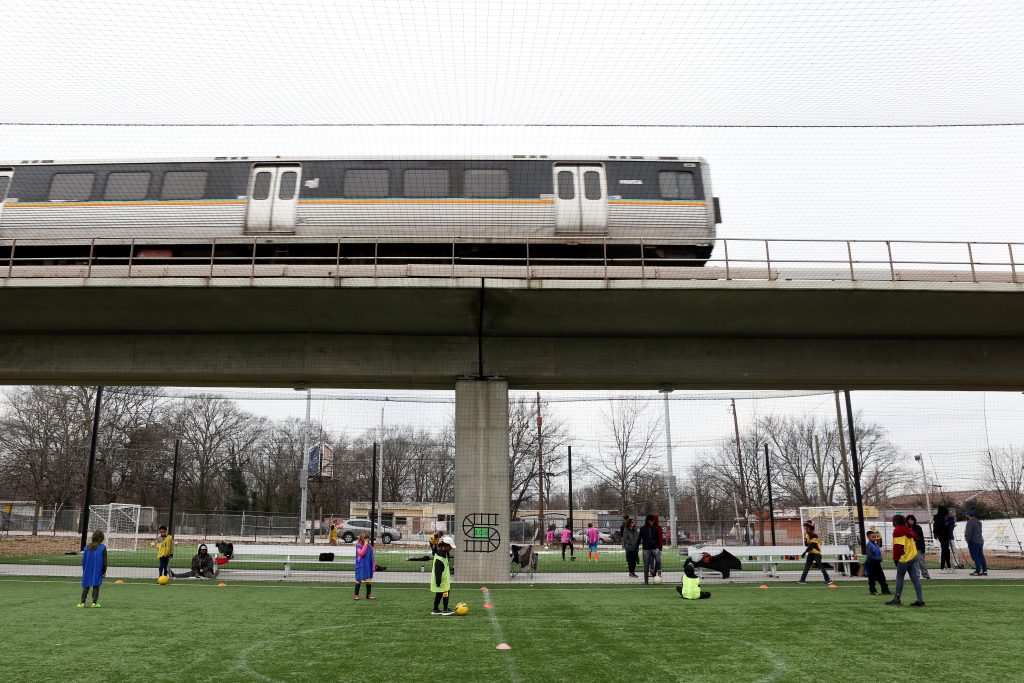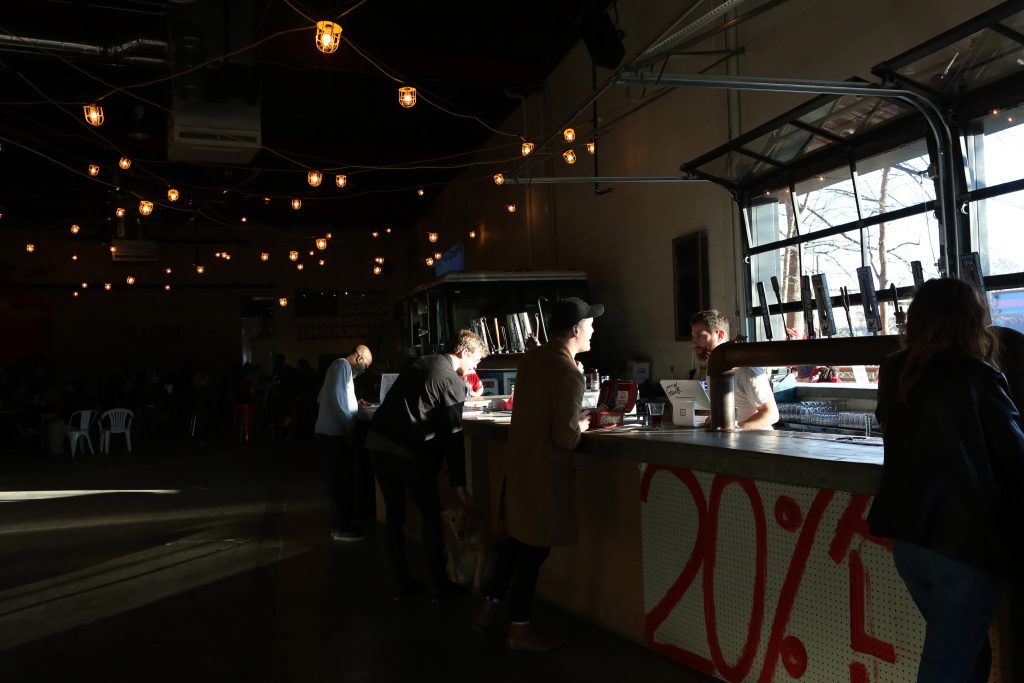The West End Is A ‘Front Porch Community’

Anthony and Angela Randle pose for a portrait together outside of the West End Mall. Anthony says he likes that the West End is changing. (Photo by Evey Wilson)
The West End MARTA station is more than just a stop for commuters. It’s a hub of sorts. Located at the bustling intersection of Ralph David Abernathy Boulevard and Lee Street.
The trains that pass by follow almost the exact same route the streetcar once did. Back when West End was one of the city’s first suburbs.

The neighborhood is filled with history and perhaps no one knows it better than Robert Thompson. He leads walking tours through the West End, a neighborhood that’s older than Atlanta itself.
It was settled along a popular trade route at the same intersection where the MARTA station now sits. That’s where Thompson starts his tours, which began as a hobby.
But even when Thompson started charging for tours of the West End, people kept coming. Thompson, who is in his 70s, first moved to the West End 25 years ago.

“It is a neighborhood, that is almost like a little village. And up until very recently, I… Read More
“It is a neighborhood, that is almost like a little village. And up until very recently, I knew most of the people here. It was literally the kind of neighborhood where you could go next door and ask for cup sugar.” — Robert Thompson
West Enders have a deep pride for their part of town. Even those who have only been here a couple years, like Joel Apudo.
At the train station, Apudo kicks around a soccer ball on a turf field beneath the tracks. He works for the nonprofit, “Soccer in the Streets.”
Like a lot of things in the neighborhood, Apudo said these soccer practices are really about building community.

“People are so proud to say like, yeah, I live in the West End or yeah I’ve been in the … Read More
“People are so proud to say like, yeah, I live in the West End or yeah I’ve been in the West End for 10, 12, 15 years. And it’s almost making me be one of those people like’ yeah, I live in West End like this is this is where I’m from. It’s cool.’ And I hope our kids see that and it’s ingrained in them like yeah, this where we grew up.” — Joel Apudo
Thompson highlights that sense of community as he leads groups past Victorian homes. Some of Atlanta’s most elite residents lived here in the 20th century. The lots are large and the porches wide. The neighborhood has the spread out feel of the suburb it once was.
As those early residents began to move to places like Inman Park, which back then the newer suburb, the West End became a mostly black community.
It’s been that way ever since. But development is bringing an influx of new residents here, which could change the demographics. Thompson highlights some of those more recent changes in his tours as well.
“We go down Peeples Street to the Belt Line. I tell people about the history about the Belt Line how I got started,” Thompson said.
The BeltLine trail opened here in 2017. Since then there’s been interest by developers to transform the neighborhood.

That includes turning the West End’s aging mall into a mix of offices, condos and shops.
Thompson’s tours eventually make their way to Hammonds House Museum. The Victorian-style home was built in 1870. It’s now a museum of African-American art.
It’s here that artist Shanequa Gay’s new site-specific exhibit, “Lit Without Sherman: A Love Letter To The West End ,” is on view. She said its an ode to the neighborhood she knew as a child.

She said she wanted to celebrate the West End before its swept up in a sea of change. She says you can see gentrification happening here in real time.
“I do see the change,” she said. “Don’t necessarily like it in and so, yeah, just looking for ways to celebrate what is here while it’s here.”
But at least for now, the camaraderie of this community she loves lives on.








